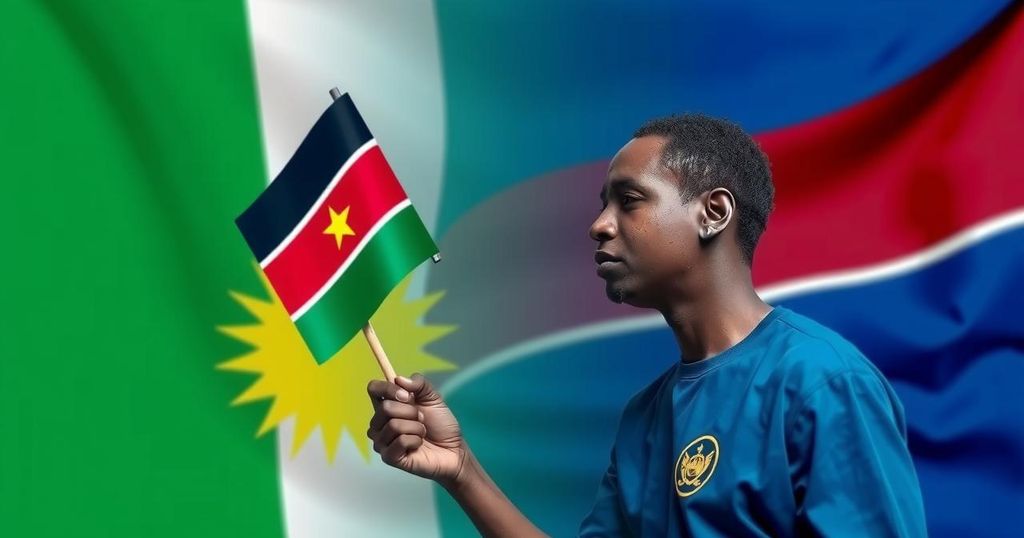Politics
AFRICA, ALLIANCE DU CHANGEMENT, ALLIANCE LEPEP, BDP, BOTSWANA DEMOCRATIC PARTY, DEMOCRACY, ELECTIONS, GOVERNANCE, GOVERNMENT, MAURITIUS, MILITANT SOCIALIST MOVEMENT, NAMIBIA, NET, NETUMBO NANDI - NDAITWAH, OPPOSITION, PARLIAMENTARY SEATS, PR, PRAVIND JAGNAUTH, SAHARAN AFRICA, SWAPO
Leila Ramsay
0 Comments
Namibia’s Elections: A Reflection of Wider Electoral Trends in Africa
Namibia’s Swapo party, despite retaining power in the presidential elections, lost significant ground in parliament, reflecting broader trends of declining support for incumbents across sub-Saharan Africa. Economic challenges, public dissatisfaction with corruption, and organized opposition have driven electoral shifts, evidenced by notable defeats in countries such as Botswana and Mauritius. This year has marked a decisive shift towards stronger democratic engagement and challenges to long-established ruling parties.
Namibia’s ruling party, Swapo, maintained its leadership for over three decades, yet has faced significant electoral challenges recently. The Swapo candidate, Netumbo Nandi-Ndaitwah, won the presidential election with 57% of the vote, marking a notable milestone as she became the first female president of the country. However, opposition parties contested this outcome, citing serious logistical issues and voting irregularities. Swapo’s decline is reflected in the parliamentary elections, where the party lost 12 seats out of 63, further diminishing its previously solid majority.
Namibia’s situation mirrors a broader trend across sub-Saharan Africa, where governing parties have encountered unprecedented challenges amid an electoral cycle filled with opposition victories. Economic downturns, heightened public disdain for corruption, and the emergence of better-organized opposition factions have contributed to this shift. Countries like Botswana and Mauritius witnessed decisive defeats for long-standing ruling parties and significant reductions in parliamentary representation, signaling a transformative shift in the political landscape.
In Senegal, the release of imprisoned opposition leaders just before elections catalyzed a significant political turnaround, resulting in a decisive victory against the incumbent party. Likewise, in South Africa, the African National Congress faced considerable backlash, dropping below 50% of the vote for the first time since the end of apartheid, compelling President Cyril Ramaphosa to form a coalition government. Internationally, similar trends have occurred, as seen in the political dynamics of the UK and the United States, where public discontent over economic issues has similarly affected incumbent parties.
The successful strategies employed by opposition parties, such as cultivating electoral coalitions and enhancing voter protections, signal a growing sophistication in the political arena of these regions. Such developments suggest a decreased tolerance for incumbents’ governance failures, evidenced by increased public mobilization for accountability. Looking ahead, these trends may pose substantial difficulties for other ruling parties across Africa, as the momentum for democratic engagement continues to build.
The article discusses the recent elections in Namibia and other sub-Saharan African countries, highlighting the challenges faced by incumbent parties. It underscores a significant shift in the political landscape marked by economic distress and rising public discontent towards governance issues. The article emphasizes how the public’s increasing demand for accountability and effective governance has led to notable electoral successes for opposition parties, diverging from a history of long-standing ruling regimes in the region.
In conclusion, Namibia’s recent elections symbolize a pivotal moment in sub-Saharan Africa’s political landscape, characterized by an electorate demanding change amidst various social and economic grievances. The decline of established ruling parties reflects a broader continental trend of increased opposition mobilization and a call for greater accountability and transparency within governance. With the prospect of continued electoral shifts into 2025, the region may witness further transformations in its political dynamics, suggesting a resilient democratic spirit among the populace.
Original Source: www.bbc.com




Post Comment